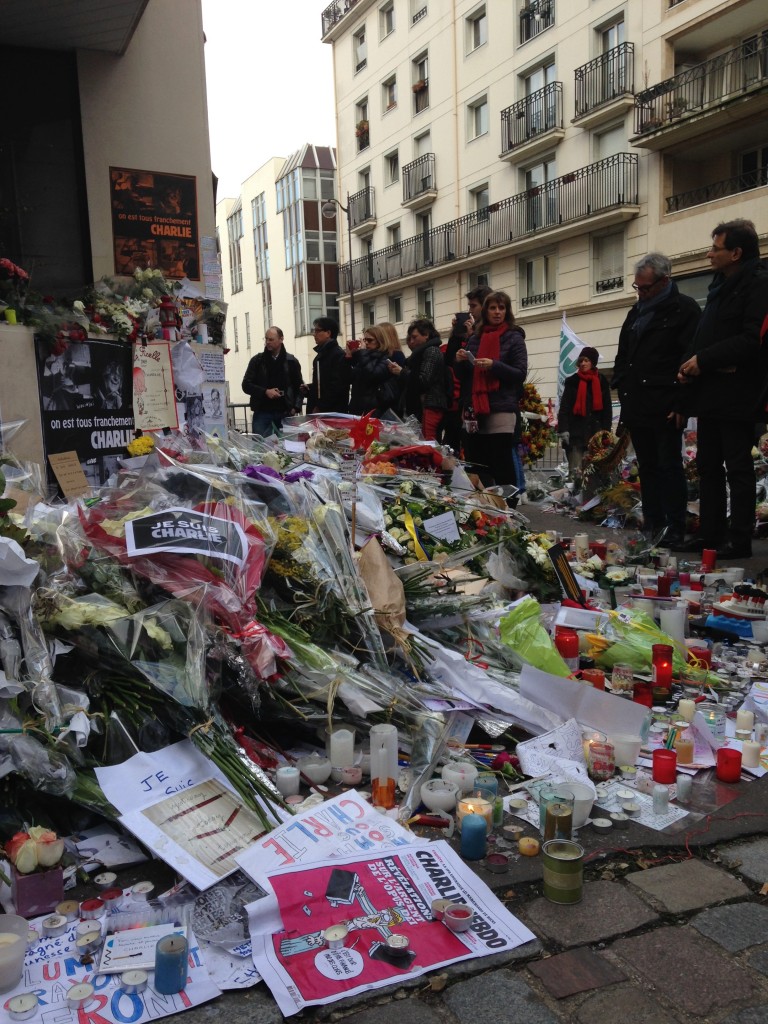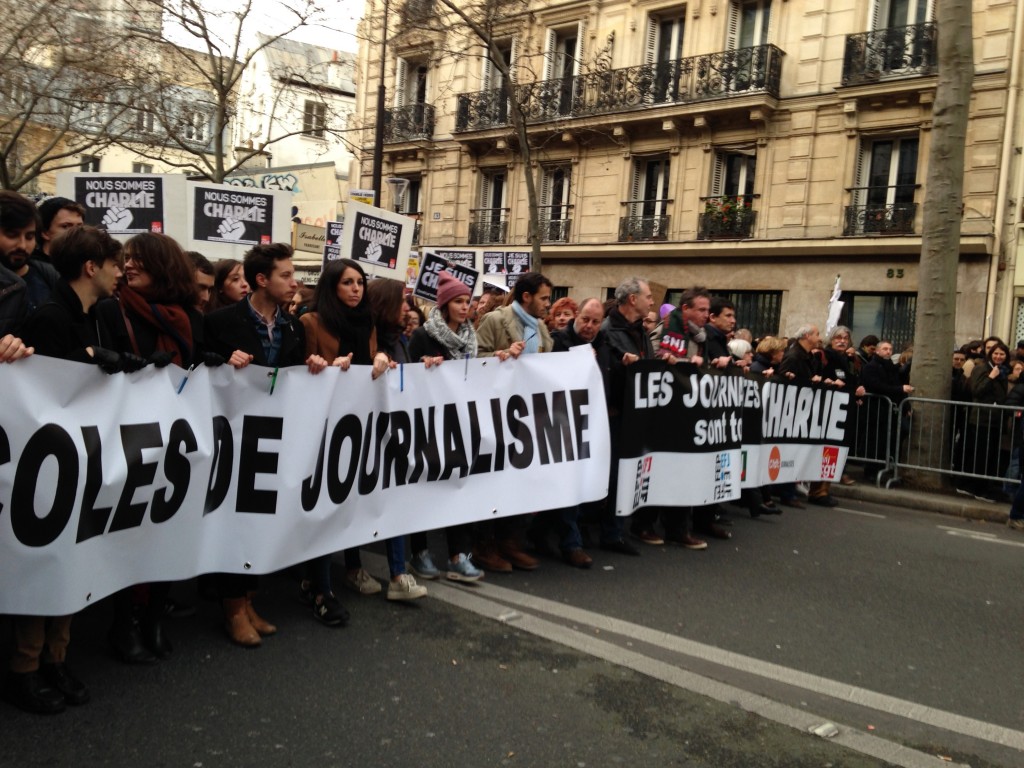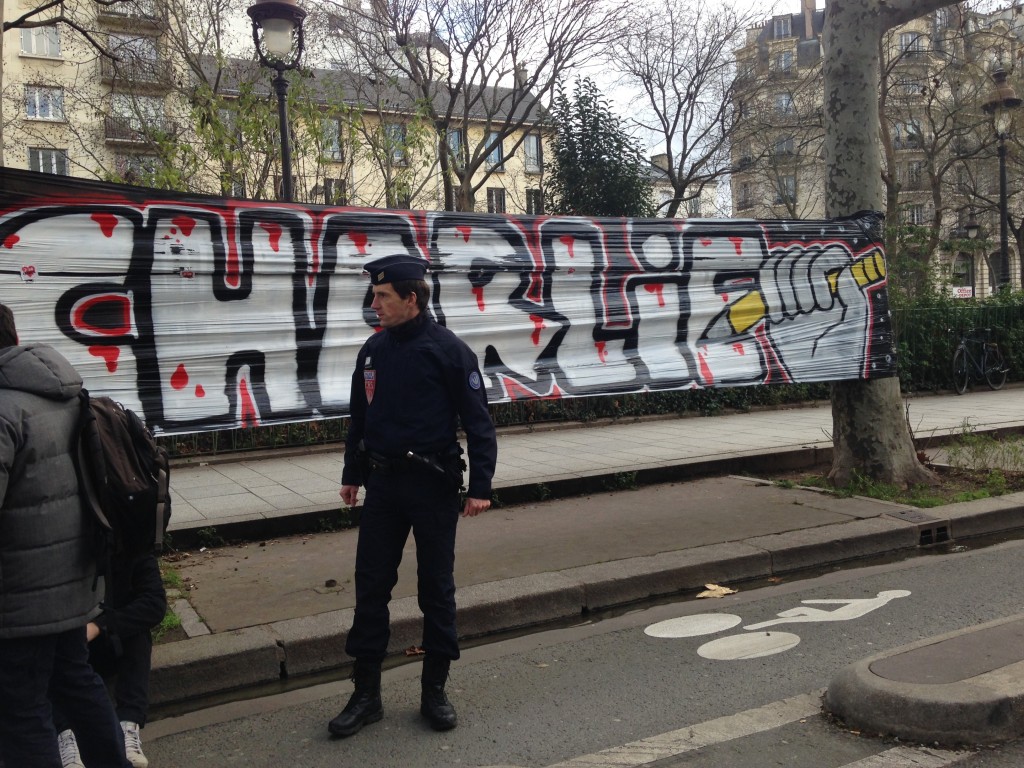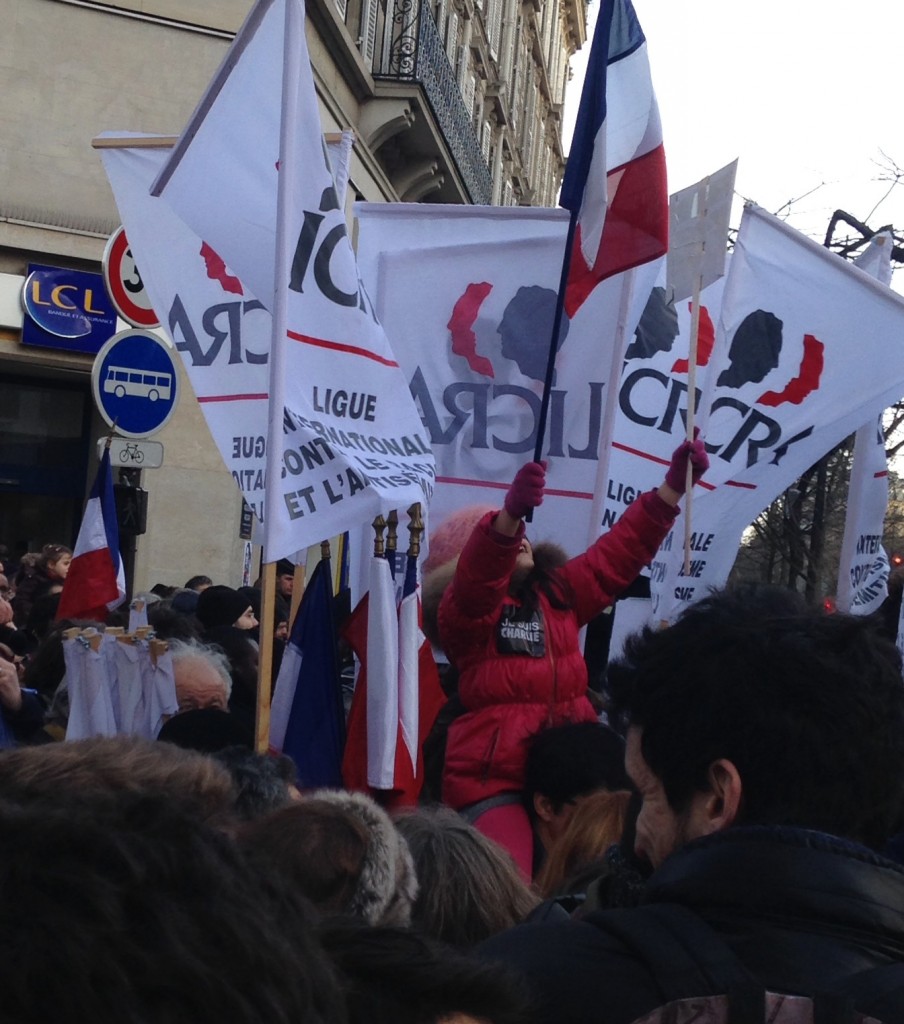PARIS — As many as a million people crowded the streets of Paris on Sunday in a show of solidarity following the week’s terrorist attacks in the French capital. Palestinian President Mahmoud Abbas and Israeli Prime Minister Benjamin Netanyahu, as well as French President Francois Hollande, were among 40 world leaders present.
The crowds gathered at Place de la République, holding signs with the now familiar slogan “Je Suis Charlie” in honor of the 12 workers killed at the magazine Charlie Hebdo last Wednesday morning. Others held signs with names of other casualties last week, including three police officers and the hostages held at a Jewish supermarket on Friday.

Many people held high a caricature portraying the prophet Mohammed locked in a wet kiss with a Charlie Hebdo employee, one of many provocative portrayals of the prophet that have been credited with the attack by Islamic extremists.
Shortly after 3 p.m., the sea of people began slowly marching toward Place de la Nation. People waved French flags and clapped from their balconies along Boulevard Voltaire, and some blasted music from their apartment windows, including The Beatles’ “All You Need is Love.”
Organizations marched in rows holding their banners, including LICRA (International League Against Racism and Anti-Semitism), Ligue des Doigts de l’Homme (Human Rights League), UEJF (Union of Jewish students of France), and a group of journalism students holding a banner reading “ECOLES DE JOURNALISME” (Journalism Schools).

“One of the most important values of the republic has been attacked, freedom of speech and expression, and I think this is an opportunity for France to come together, especially since it has been split because of religious and ethnic divides,” said Simon Prigent, 27, a student at The Graduate School of Journalism in Lille, in Northern France. “Of course this march is even more important to us because it’s our future profession, but this is also a great opportunity for all of France to come together and give a strong message to terrorists.”
The journalism students held up pens and pencils, the most prevalent symbol of the rally, honoring the right to freedom of the press that was attacked. A group of young people hoisted a giant pencil made from cardboard with the rally’s anthem: “Indignation. Resistance. Solidarity. I am Charlie.” Every few minutes the sound of clapping blew through the crowd like a wave, growing louder and louder, and people of all ages chanted, “Charlie, Charlie, Charlie.”

The intense military presence in Paris since Wednesday was felt heavily as armed police stood watch every few meters and snipers overlooked the crowd from rooftops next to chimneys swirling with smoke in the cold. Traffic police appeared more heavily-armed and wary in the days leading up to Sunday, especially given the week’s several bomb-threats and false alarms, including on the metros and at Trocadero, a place near the Eiffel Tower teeming with tourists.
“A lot of the military has been mobilized,” Prigent said. “I feel safe.”
Le Marais, the Jewish neighborhood, was closed Friday night as another security measure after a kosher market was holed-up on Friday, resulting in four deaths, and The Grand Synagogue of Paris was closed on a Sabbath for the first time since World War II.
“They wanted to divide us, but France is not dividing itself,” said Charlotte Belaich, 23, also a journalism student. “Yes, this march is partially about freedom of speech, but for me it’s more about French people coming together because it’s not only the press that’s been targeted, but all of France and its people.”
Ethnic and religious tensions have been on the rise in France with the escalation of terrorist groups, creating a growing rift between the populous Jewish and Muslim communities here. According to a website called The Isis Study Group, France has an estimated 700 to 900 citizens who have or are currently participating in jihadist groups in Syria and Iraq, including the Islamic State, associated with Al Qaeda.

The prevailing assumption in Paris is that the week’s attacks were meant to incite further divisions and fear; however, the million people marching fearlessly through the cold even until after dark fell, bearing signs of unity written in English, French, Hebrew and Arabic, showed a different reaction. “We are not afraid,” read thousands of stickers and signs waving through the sea of people of all ages and ethnicities.
Police presence remained heavier than normal Sunday evening, but Belaich is confident the pervasive fear and nervousness will fade. “It’s been a sad atmosphere, and everyone has been talking about what’s happened, at school and even at parties this weekend,” she said. “I think with time, though, other news will take over, and in the end we will show that France won’t be divided and we are not afraid.”
By Felicia Bonanno
